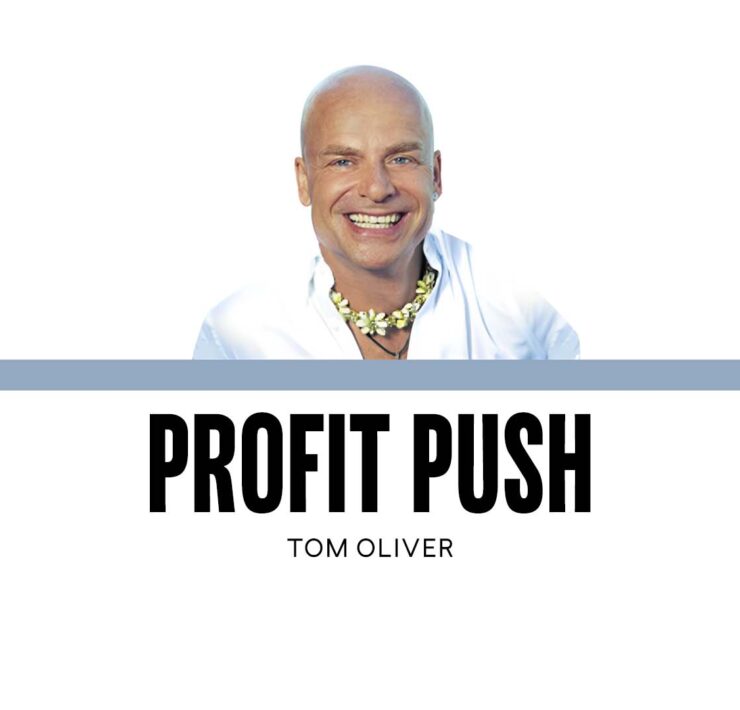The billionaire habits: Unlocking 6 secrets of the ultrawealthy

What do self-made billionaires like Jeff Bezos, Warren Buffett and Elon Musk have in common besides their vast fortunes? It’s the power of their daily habits.
Having had the privilege of advising, mentoring and collaborating with some of the richest entrepreneurs and famous billionaires in the world, I’ve observed one undeniable truth: they all share certain common habits that they carefully cultivate. When I guide these ultrahigh-net-worth individuals on how to further expand their personal fortunes and business empires, while also seeking greater personal fulfillment, happiness, growth and performance, I always emphasize a set of principles.
These principles, when adopted as daily habits, are the key to not only professional success but also to achieving optimum health, fitness and balance in life. In this article, I’ll outline some of these crucial habits—ones that I teach to my billionaire clients—providing a blueprint for how to enhance your professional and personal success.
1. Mastering time management: The power of focus
Billionaires understand that time is the most valuable resource. Elon Musk, for example, is known for his method of “time-blocking”—breaking his day into five-minute intervals. Every task is given a specific time slot, which allows him to juggle his responsibilities at SpaceX, Tesla and his other ventures. This extreme form of scheduling may sound intense, but it highlights a critical principle: focusing on what truly matters.
Most executives find their days filled with back-to-back meetings, endless emails and distractions that pull them away from strategic thinking. By adopting a more disciplined approach to time management—whether through time-blocking or simply setting aside specific periods for deep work—CEOs can ensure that their time is spent on high-impact activities. Steve Jobs famously reduced his decisions to only the most crucial ones, allowing him to focus his energy where it counted most.
2. Become a ‘learning machine’: A commitment to growth
I read a book every two weeks. I listen to them on audio while I work out, swim or get ready to board another plane. Warren Buffett spends 80 percent of his day reading and reflecting. This habit is not just about gathering information; it’s about continuous learning and staying ahead of the curve. Buffett’s partner, Charlie Munger, emphasizes the importance of “latticework”—building a network of mental models from various disciplines to make better decisions. This approach allows billionaires like Buffett to see patterns and connections that others miss.
For business leaders, the takeaway is clear: make learning a priority. Whether it’s reading books, listening to podcasts, or engaging in discussions with other industry leaders, the pursuit of knowledge is a habit that pays dividends. Bill Gates, another voracious reader, credits his success to his insatiable curiosity and willingness to learn from a wide range of sources.
3. Building and leveraging networks: The power of relationships
Richard Branson once said, “Succeeding in business is all about making connections.” Billionaires understand that their network is one of their most valuable assets. They actively seek out relationships with other successful individuals, not just to learn from them but to create opportunities for collaboration.
A powerful example is the partnership between Microsoft and IBM in the 1980s. Bill Gates recognized the value of aligning with a larger company, which not only boosted Microsoft’s credibility but also accelerated its growth. This ability to build and leverage relationships is a habit that all successful leaders cultivate. Whether it’s attending industry conferences, joining exclusive clubs, or simply making time for lunch with a potential partner, networking should be an intentional part of any executive’s routine.
4. Practicing discipline and resilience: The mindset of champions
Billionaires don’t just talk about discipline; they live it. Jeff Bezos often speaks about the importance of long-term thinking and maintaining focus on customer obsession, even when it means sacrificing short-term gains. This mindset requires an extraordinary level of discipline—sticking to a vision despite the noise of quarterly results or market fluctuations.
Another key habit is resilience. When Elon Musk faced near bankruptcy with Tesla and SpaceX, his response was not to retreat but to double down on his vision. This relentless drive, combined with an ability to withstand pressure, is what separates billionaires from those who falter in the face of adversity. Business leaders must cultivate a similar mindset, staying the course even when challenges seem insurmountable. Resilience, combined with disciplined execution, is a habit that builds enduring success.
5. Prioritizing health: The ultimate investment
It’s easy to assume that billionaires are all work and no play, but the reality is that many of them prioritize their health just as much as their business ventures. For instance, Mark Cuban has a strict workout routine that he follows daily, and Richard Branson attributes much of his success to his commitment to physical fitness. Branson claims that working out not only keeps him in shape but also doubles his productivity.
Health is often overlooked by busy executives, but it’s a habit that can make or break long-term success. Prioritizing physical fitness, mental well-being and adequate sleep isn’t just about personal health; it’s about ensuring that you have the energy and clarity to lead effectively. Incorporating regular exercise, meditation, or mindfulness practices into your daily routine can significantly boost performance, just as it does for these billionaire leaders.
6. Giving back: The philanthropic habit
The final habit that many billionaires share is a commitment to philanthropy. Giving back isn’t just about charity; it’s a habit that reinforces the purpose behind their success. It’s about using wealth to create lasting impact, which in turn, inspires loyalty and respect from employees, customers and the public. For CEOs and business leaders, adopting a philanthropic mindset—whether through personal giving or corporate social responsibility—can enhance the legacy you leave behind while also providing a deeper sense of fulfillment.
For me personally, my life has always been about impact. I was never driven by money. This is one of the reasons why I founded a charity for world peace long ago, the World Peace Foundation, which has achieved global impact and earned praise from heads of state and numerous Nobel Peace Laureates, including the Dalai Lama and Archbishop Desmond Tutu. Tutu even called it ‘the most influential peace gathering in history.’ It was during that time that I learned ‘altruism is the greatest form of egoism’ because it makes you feel so good. I suppose that’s nature’s clever way of embedding altruism into our DNA!
Tom Oliver, a “global management guru” (Bloomberg), is the chair of The Tom Oliver Group, the trusted advisor and counselor to many of the world’s most influential family businesses, medium-sized enterprises, market leaders and global conglomerates. For more information and inquiries: www.TomOliverGroup.com or email Tom.Oliver@inquirer.com.ph.


















